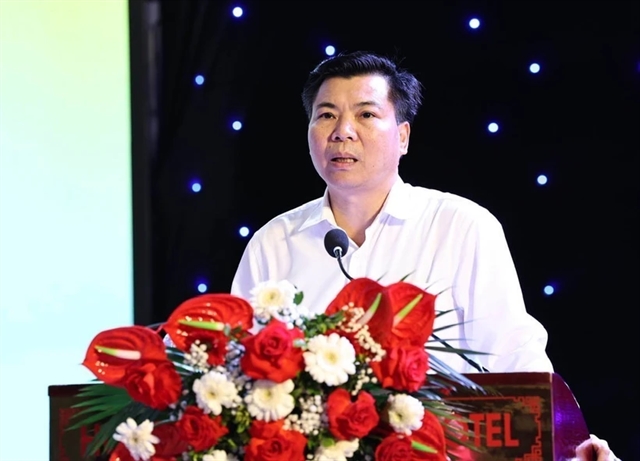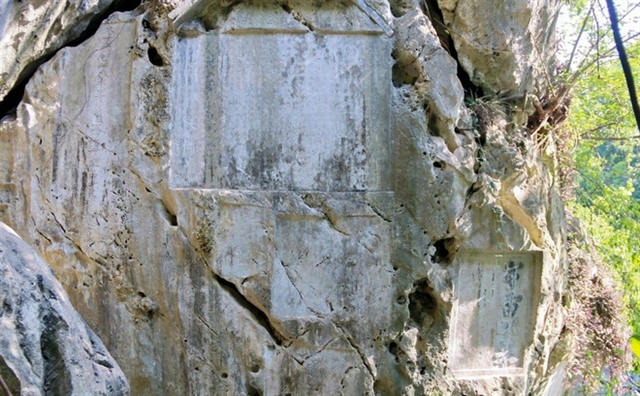 Life & Style
Life & Style


|
| Nguyễn Mạnh Cường, Director of the provincial Department of Culture and Sports, speaks at the conference — VNA/VNS Photo |
NINH BÌNH — The Department of Culture and Sports of Ninh Bình Province, in collaboration with the University of Social Sciences and Humanities and the Institute of Sino-Nôm Studies, on June 4 organised an international scientific conference themed "Hán-Nôm Inscriptions on Non Nước Mountain – Potential Documentary Heritage."
This event aimed to gather opinions from foreign experts, scholars, and managers in the cultural field on the process of developing and finalising the nomination dossier for the Hán (Chinese script)-Nôm (Vietnamese ideographic script) Inscriptions on Non Nước Mountain, in Vân Giang ward of Hoa Lư City to be inscribed in the UNESCO Memory of the World Programme for the Asia-Pacific Region.
Nguyễn Mạnh Cường, Director of the provincial Department of Culture and Sports, stated that Non Nước Mountain, recognised by the Prime Minister as a special national historical and scenic site, is not only renowned for its historical, cultural, and scenic values but also as a treasure trove of unique documentary heritage.
Hán-Nôm inscriptions carved on the cliffs here hold significant value in terms of history, culture, religion, belief, literature and arts. They not only reflect the presence and development of Hán-Nôm literature in the former imperial capital but also serve as vivid evidence of the cultural, ideological, and religious exchanges that took place throughout various Vietnamese feudal dynasties over the centuries.

|
| Hán-Nôm inscriptions engraved on Non Nước Mountain cliff Photo dantri.vn |
Out of the 43 extant stone steles on the mountain, 37 are Hán-Nôm inscriptions dating from the Trần Dynasty (1225-1400) to the early 20th century. These inscriptions are unique original engravings, featuring imperial poems and prose composed by kings, poetic verses by scholars and poets, along with distinctive calligraphic and scriptural features.
At the conference, delegates focused their discussions on several key issues, including the inventory, identification, and assessment of the historical, cultural, heritage, and scientific values of the Hán-Nôm inscription system; matters related to the preservation, restoration, and promotion of these values in the broader context of heritage-based economic development; and sharing of domestic and international experiences and models in the management and sustainable utilisation of documentary heritage in line with local socio-economic development goals. — VNA/VNS




